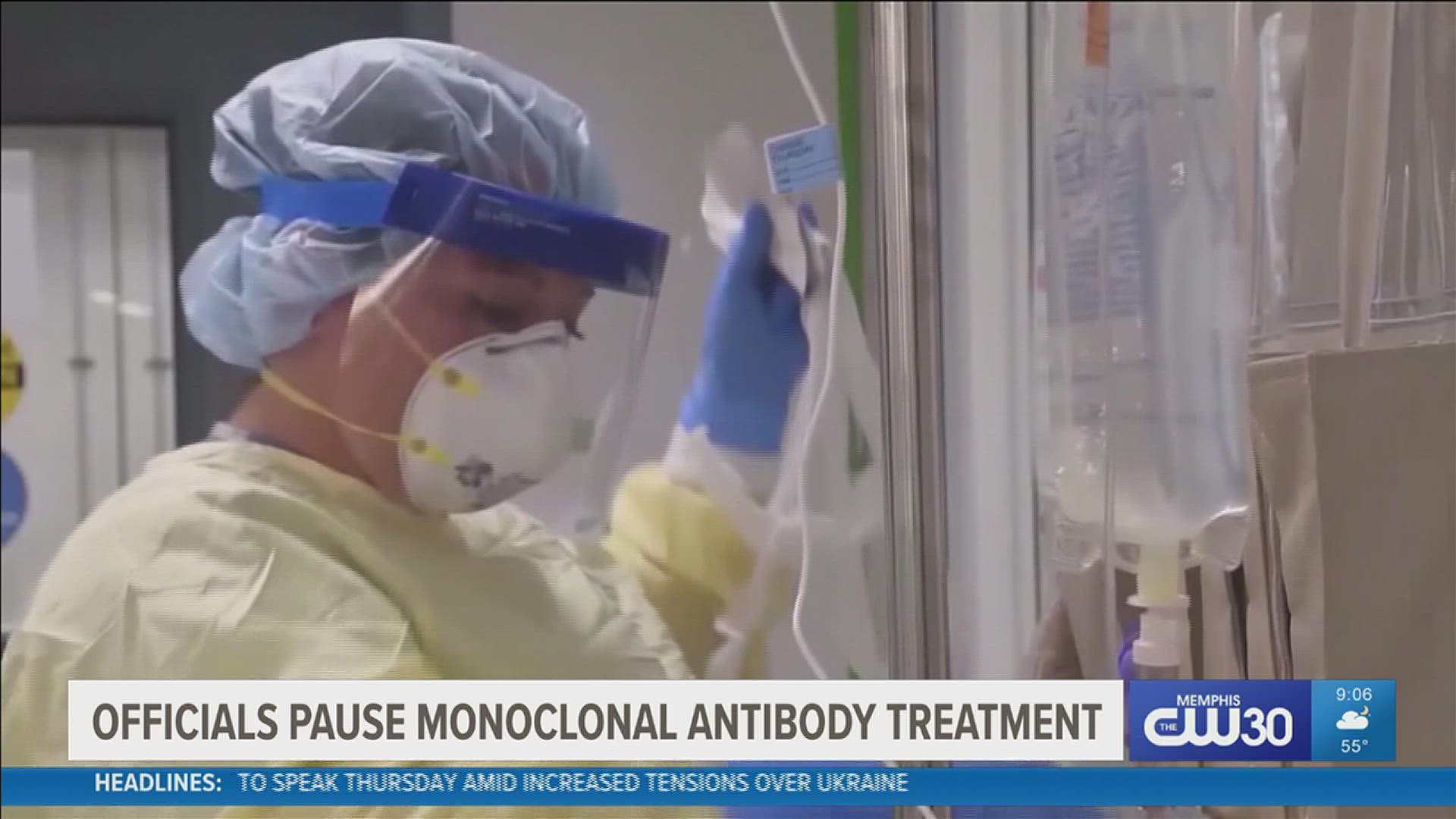MEMPHIS, Tenn. — For the last year, monoclonal antibodies have been one the most promising treatments for moderate COVID--- until now. Shelby County hospitals have paused the monoclonal antibody treatments because they have become useless against the rapidly-spreading omicron variant.
Local health officials said the omicron variant makes up about 50% to 60% of all COVID-19 cases in Shelby County, and their hands are tied right now as they wait for a shipment of the only option that can help people.
Infectious disease expert Manoj Jain with the Shelby County COVID-19 task force said the monoclonal antibodies are helpful in decreasing hospitalizations and causing more complications for those with the Delta variant. Jain said now when it comes to treating COVID-19, doctors have to stop using two of the three types of monoclonal antibodies after federal research found they don't work against omicron.
According to the CDC, in the United States, the three anti-SARS-CoV-2 monoclonal antibody treatments with FDA Emergency Use Authorization (EUA) for the treatment of COVID-19:
- Bamlanivimab plus Etesevimab,
- Casirivimab plus Imdevimab,
- Sotrovimab
Jain said Sotrovimab is the only monoclonal antibody treatment that can prevent Omicron patients from becoming seriously ill. Since the majority of the COVID-19 cases are Omicron, Jain said health officials have to assume everyone who is exposed has the omicron strain and stop antibody treatment.
"Generally what happens is someone gets tested positive for covid on a PCR, then if we want to sequence it to determine if it's the omicron variant or the delta variant that takes another three to five days. That's why we can't test everyone and decide on the monoclonal antibody.
Jain said for the infusion to work, you have to get treated within five days of showing symptoms. As a reminder, this treatment is not a substitution for the vaccine. It is only for people who are at high risk for developing severe COVID-19, have had a positive COVID test but have not been admitted to the hospital.
Before pausing monoclonal antibody treatment the week on Dec. 20, Shelby County hospitals have administered monoclonal antibody treatments to nearly 30,000 people.
When the treatments are available again in the next few weeks, Jain said it will fight against both the Delta and the Omicron variants.

